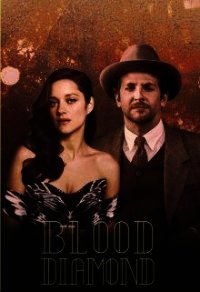Captain Blood - Sabatini Rafael (библиотека электронных книг .TXT) 📗
"Guns!" said Pitt, who stood with Blood upon the quarter-deck. Blood nodded, listening.
"Ten miles away, perhaps fifteen — somewhere off Port Royal, I should judge," Pitt added. Then he looked at his captain. "Does it concern us?" he asked.
"Guns off Port Royal... that should argue Colonel Bishop at work. And against whom should he be in action but against friends of ours I think it may concern us. Anyway, we'll stand in to investigate. Bid them put the helm over."
Close-hauled they tacked aweather, guided by the sound of combat, which grew in volume and definition as they approached it. Thus for an hour, perhaps. Then, as, telescope to his eye, Blood raked the haze, expecting at any moment to behold the battling ships, the guns abruptly ceased.
They held to their course, nevertheless, with all hands on deck, eagerly, anxiously scanning the sea ahead. And presently an object loomed into view, which soon defined itself for a great ship on fire. As the Arabella with the Elizabeth following closely raced nearer on their north-westerly tack, the outlines of the blazing vessel grew clearer. Presently her masts stood out sharp and black above the smoke and flames, and through his telescope Blood made out plainly the pennon of St. George fluttering from her maintop.
"An English ship!" he cried.
He scanned the seas for the conqueror in the battle of which this grim evidence was added to that of the sounds they had heard, and when at last, as they drew closer to the doomed vessel, they made out the shadowy outlines of three tall ships, some three or four miles away, standing in toward Port Royal, the first and natural assumption was that these ships must belong to the Jamaica fleet, and that the burning vessel was a defeated buccaneer, and because of this they sped on to pick up the three boats that were standing away from the blazing hulk. But Pitt, who through the telescope was examining the receding squadron, observed things apparent only to the eye of the trained mariner, and made the incredible announcement that the largest of these three vessels was Rivarol's Victorieuse.
They took in sail and hove to as they came up with the drifting boats, laden to capacity with survivors. And there were others adrift on some of the spars and wreckage with which the sea was strewn, who must be rescued.
CHARTER XXIX
THE SERVICE OF KING WILLIAM
One of the boats bumped alongside the Arabella, and up the entrance ladder came first a slight, spruce little gentleman in a coat of mulberry satin laced with gold, whose wizened, yellow, rather peevish face was framed in a heavy black periwig. His modish and costly apparel had nowise suffered by the adventure through which he had passed, and he carried himself with the easy assurance of a man of rank. Here, quite clearly, was no buccaneer. He was closely followed by one who in every particular, save that of age, was his physical opposite, corpulent in a brawny, vigorous way, with a full, round, weather-beaten face whose mouth was humourous and whose eyes were blue and twinkling. He was well dressed without fripperies, and bore with him an air of vigorous authority.
As the little man stepped from the ladder into the waist, whither Captain Blood had gone to receive him, his sharp, ferrety dark eyes swept the uncouth ranks of the assembled crew of the Arabella.
"And where the devil may I be now?" he demanded irritably. "Are you English, or what the devil are you?"
"Myself, I have the honour to be Irish, sir. My name is Blood — Captain Peter Blood, and this is my ship the Arabella, all very much at your service.
"Blood!" shrilled the little man. "O 'Sblood! A pirate!" He swung to the Colossus who followed him — "A damned pirate, van der Kuylen. Rend my vitals, but we're come from Scylla to Charybdis."
"So?" said the other gutturally, and again, "So?" Then the humour of it took him, and he yielded to it.
"Damme! What's to laugh at, you porpoise?" spluttered mulberry-coat. "A fine tale this'll make at home! Admiral van der Kuylen first loses his fleet in the night, then has his flagship fired under him by a French squadron, and ends all by being captured by a pirate. I'm glad you find it matter for laughter. Since for my sins I happen to be with you, I'm damned if I do."
"There's a misapprehension, if I may make so bold as to point it out," put in Blood quietly. "You are not captured, gentlemen; you are rescued. When you realize it, perhaps it will occur to you to acknowledge the hospitality I am offering you. It may be poor, but it is the best at my disposal."
The fierce little gentleman stared at him. "Damme! Do you permit yourself to be ironical?" he disapproved him, and possibly with a view to correcting any such tendency, proceeded to introduce himself. "I am Lord Willoughby, King William's Governor-General of the West Indies, and this is Admiral van der Kuylen, commander of His Majesty's West Indian fleet, at present mislaid somewhere in this damned Caribbean Sea."
"King William?" quoth Blood, and he was conscious that Pitt and Dyke, who were behind him, now came edging nearer, sharing his own wonder. "And who may be King William, and of what may he be King?"
"What's that?" In a wonder greater than his own, Lord Willoughby stared back at him. At last: "I am alluding to His Majesty King William III — William of Orange — who, with Queen Mary, has been ruling England for two months and more."
There was a moment's silence, until Blood realized what he was being told.
"D'ye mean, sir, that they've roused themselves at home, and kicked out that scoundrel James and his gang of ruffians?"
Admiral van der Kuylen nudged his lordship, a humourous twinkle in his blue eyes.
"His bolitics are fery sound, I dink," he growled.
His lordship's smile brought lines like gashes into his leathery cheeks. "'Slife! hadn't you heard? Where the devil have you been at all?"
"Out of touch with the world for the last three months," said Blood.
"Stab me! You must have been. And in that three months the world has undergone some changes." Briefly he added an account of them. King James was fled to France, and living under the protection of King Louis, wherefore, and for other reasons, England had joined the league against her, and was now at war with France. That was how it happened that the Dutch Admiral's flagship had been attacked by M. de Rivarol's fleet that morning, from which it clearly followed that in his voyage from Cartagena, the Frenchman must have spoken some ship that gave him the news.
After that, with renewed assurances that aboard his ship they should be honourably entreated, Captain Blood led the Governor-General and the Admiral to his cabin, what time the work of rescue went on. The news he had received had set Blood's mind in a turmoil. If King James was dethroned and banished, there was an end to his own outlawry for his alleged share in an earlier attempt to drive out that tyrant. It became possible for him to return home and take up his life again at the point where it was so unfortunately interrupted four years ago. He was dazzled by the prospect so abruptly opened out to him. The thing so filled his mind, moved him so deeply, that he must afford it expression. In doing so, he revealed of himself more than he knew or intended to the astute little gentleman who watched him so keenly the while.
"Go home, if you will," said his lordship, when Blood paused. "You may be sure that none will harass you on the score of your piracy, considering what it was that drove you to it. But why be in haste? We have heard of you, to be sure, and we know of what you are capable upon the seas. Here is a great chance for you, since you declare yourself sick of piracy. Should you choose to serve King William out here during this war, your knowledge of the West Indies should render you a very valuable servant to His Majesty's Government, which you would not find ungrateful. You should consider it. Damme, sir, I repeat: it is a great chance you are given.




